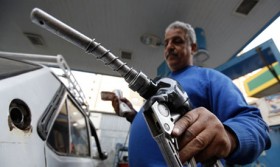 Power cuts in the summer have been slightly increasing in Egypt over the past few years, yet were most profoundly felt this year, affecting homes and businesses adversely. Areas around Cairo and major cities have rotating power outages lasting often 90 minutes on average, with outages reportedly longer in rural and non-urban areas.
Power cuts in the summer have been slightly increasing in Egypt over the past few years, yet were most profoundly felt this year, affecting homes and businesses adversely. Areas around Cairo and major cities have rotating power outages lasting often 90 minutes on average, with outages reportedly longer in rural and non-urban areas.
Officials have been exchanging blame for the phenomenon, accusing the ministries of petroleum and electricity for fuel shortages, protests and strikes at power plants, and also the rise in the number of air conditioning units in homes. Alternatively, citizens and political groups put the blame on government officials and the pace of development and maintenance of the country’s energy supplies, production capacity and electricity grid.
Official figures show the number of AC units in Egypt were under 200,000 in 1999, rising to three million in 2009, and doubling to six million by 2012 due to the introduction of cheaper units to the market, accounting alone for 20 per cent of energy consumption according to a spokesperson for the Ministry of Electricity.
According to the Egyptian Electricity Holding Company, households account for 42 per cent of electricity usage, while industry accounts for 32 per cent (down from 38 per cent in 2007). Also blamed are the street lamps which often are being left lit in the day time; these reportedly account for six per cent of energy consumption.
Current overall peak summer demand is said to be around 3000 megawatts more than can be easily provided by the national grid.
Another problem that has been felt over the past year has been intermittent shortages of transport fuel, with cars and trucks lining up for hours at gas stations in order to refuel, uncertain whether or not they would eventually get their tanks filled.
In addition, there has been also a shortage of butane gas canisters, which remain in heavy usage in both urban and rural households, used for cooking and other domestic purposes.
Blame has been variably assigned to theft and smuggling of subsidised fuel for resale in the black market and abroad, panic-buying and stocking, protests and strikes, distribution problems, and bad weather conditions affecting imports. The problem seems to regularly resurface in major cities every few weeks for a few days, while is reported to be more severe and regular outside urban areas.
According to Egyptian daily Al-Masry Al-Youm, quoting government sources, the state is currently attempting to fight the shortages by pumping larger-than-normal daily amounts of fuel: 38,000 tons of diesel, 15,000 tons of fuel, and half a million butane gas canisters.
Also, as part fo a larger pan-Arab electricty-grid integration project that involves 8 Arab states, Egypt and Saudi Arabia have signed an agreement allowing for the two-way exchange of 3000 megawatts of electricity, designed to relieve either country during times of peak electricity demand.
